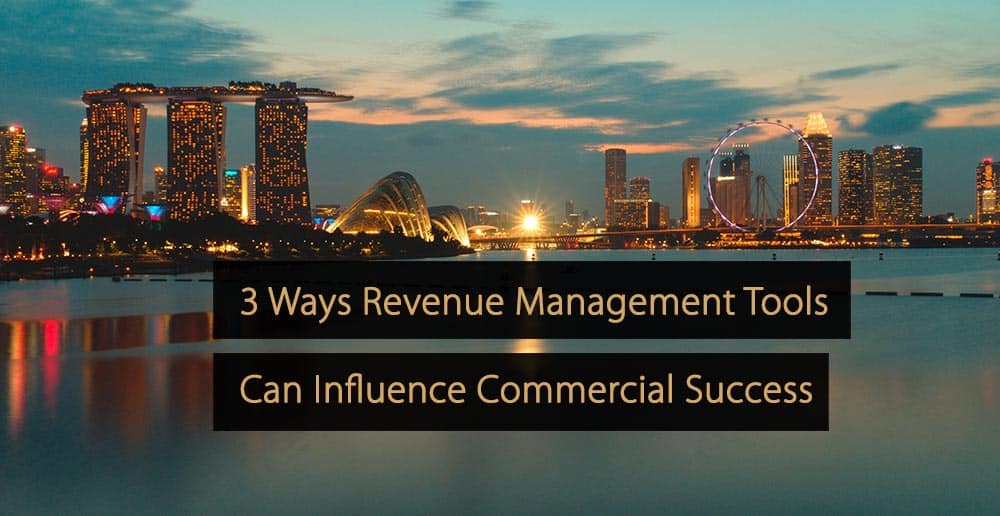If you’ve ever considered becoming an accommodation provider or already own accommodation and want to maximize your revenue, this article is for you. In this in-depth dive into accommodation ownership, you can learn about the many different types of accommodation available for travelers and how you can get more revenue as an owner.
Table of Contents:
- What Is the Hotel Industry?
- The Role of Accommodation Owners
- Types of Accommodations
- Where to Sell Your Accommodation
- Top Marketing Strategies for Accommodation Providers for More Revenue
- Main Technology Trends for Accommodation Providers
- Everything Accommodation Providers Need to Know About Tourism
- Different Types of Accommodation in the Hotel Industry
What Is the Hotel Industry?
The hotel industry is a section of the broader hospitality industry. While hotels may perform many of the same functions as other enterprises in the hospitality industry, such as serving food and providing spa services and exercise facilities, their primary purpose is to provide accommodation.
While other hospitality-oriented businesses may offer similar services to a hotel, they don’t include facilities for an overnight stay. The hotel industry doesn’t just include traditional hotels, where guests rent a private room for one or more nights. It also includes businesses such as motels, hostels where guests sleep in shared dormitories, some short-term apartment and cottage rentals, and private rentals such as homestays.
The hotel industry can also include more unusual and unique types of accommodation, such as luxury tents or lodgings on board “boatels” (floating hotels). For an in-depth look at the hotel industry, read “Hotel Industry: Everything You Need to Know About Hotels!”
The Role of Accommodation Owners
Accommodation owners are the owners and operators of enterprises that provide accommodation. An accommodation owner can be an individual, such as an independent hotelier or a homeowner renting a room on their property. Accommodation owners are often corporate entities such as hotel chains or resort companies.
Accommodation owners may operate just one type of accommodation, such as a motel chain, or several different kinds of accommodation. Owners are faced with a variety of complex responsibilities. While these can be delegated to hotel management, the responsibility for ensuring that hotels are properly run.
The proper running of a hotel includes everything from decisions about the decor and landscaping to maintaining the property and managing the hotel’s finances. Typically, a skilled and experienced management team will be assembled to handle the hotel’s various aspects. In the case of smaller businesses, the owner can take care of most of the tasks themselves with only a few staff.
Types of Accommodations
In this section, you’ll learn about the types of establishments an accommodation provider might manage.
Chain Hotels
Accommodation providers often run hotels that are part of a chain. As an affiliate of a hotel chain, a hotel owner will operate their business under the auspices of the chain. There are typically minimum standards and policies that the owner must conform to.
Campsite
A campsite owner may provide accommodation for tents, caravans, and recreational vehicles. As well as tent pitches, campsites often have light leisure accommodations such as chalets, sites for caravans and RVs, power hook-ups, shower blocks, and shared kitchen areas.
Hostel
A hostel is a type of accommodation aimed at the budget traveler. They provide very basic accommodation, typically with multiple guests sharing a dormitory. Some hostels may also offer a few private rooms. Hostels often have facilities such as a common room, a cafe, or a bar and may provide tours and other entertainment.
Homestay
In a homestay arrangement, guest lodges in a local residence. These can be short-term arrangements or can continue for as long as a year. In some cases, the guest pays; in others, they may receive free accommodation in exchange for help around the home.
Glamping
Glamping is a portmanteau of “glamorous” and “camping.” As the name implies, glamping means staying in a tent or light accommodation that is luxurious and designed for comfort. Glamping combines fun and adventure with resort-style amenities and services, like Wi-Fi, pools, heating, and more.
Motel
A motel (motor hotel) is a lower-cost hotel. They are usually low-rise structures offering basic lodging for road travelers. Motels are popular with those who drive long distances for a living, such as haulers, traveling salespeople, etc. Those traveling for recreation may also stay at a motel.
Lodge
A lodge is a house or hut, typically located in a rural or wilderness setting. Smaller than the typical hotel, lodges are popular with mountaineers, winter sports enthusiasts, and nature lovers — anyone who prefers to stay in a remote and scenic location. A lodge can be small and basic or large and relatively luxurious.
Boutique Hotel
Boutique hotels are small, typically with fewer than 100 rooms. They are usually located in popular or exciting locations: a city center or a cultural district. The design is likely to be highly individual. Boutique hotels may be operated by an independent accommodation provider or a chain.
Farmstay
Farmstays are accommodations offered by working farms. They’re a type of agritourism allowing visitors to experience life on a farm. A farm stay may involve interacting with the farm, with guests possibly performing tasks in exchange for lodging. In some cases, farm stays may be focused on families with children. Others have a lower age limit.
Bed & Breakfast
A bed-and-breakfast is a small establishment offering accommodation and meal service. This is often limited to breakfast but sometimes to other meals as well. Typically the accommodation owner will operate the establishment alongside a small staff and live on the premises. B&Bs are cozier and more home-like than chain hotels.
Resort
A resort is generally situated by the beach, in the mountains, in the countryside, or on an island — scenic and exotic places, typically some distance from the city. As well as scenic surroundings, resorts offer a range of recreational facilities, activities for guests to enjoy, and accommodations.
Business Hotel
Business hotels are usually situated in business districts and convenient downtown locations. They are aimed primarily at business travelers and provide facilities such as offices, conference rooms, and rooms for private meetings. Business hotels are also popular with conference groups and some solo travelers.
Inns
An inn’s owner is often an individual or a family rather than a chain. There may be fewer of the in-room amenities you’d expect in a large hotel, but the accommodations will be more friendly and cozy. Rooms may be decorated in an unusual and individual style, creating a memorable guest experience.
Suite Hotels
While it’s common for a hotel to offer some suites, a suite hotel focuses exclusively on suites of rooms. They range from inexpensive options to luxury suites in extravagant hotels. Unlike a typical hotel room, a suite separates sleeping and living areas into separate rooms. Some suites also incorporate a kitchenette.
Casino Hotels
A casino hotel offers gambling facilities as well as accommodation. Guests choose casino hotels primarily for access to the casino facilities but also for the other entertainment on offer. Casinos offer extravagant shows, as well as upscale dining. Some casino hotels provide luxury services, such as charter flights.
Floatels/Boatels
Floatels, also known as boatels, are essentially floating hotels. Their unique selling point is that they’re on a body of water. They may be boats, ships, or hotels constructed on rafts. They are sometimes purpose-built as accommodation, such as moored cruise ships, or they may be repurposed vessels.
Conference Center
Conference centers provide a high standard of accommodation and facilities for conferences and meetings. They are used when a convention or meeting occurs, and attendees will require somewhere to stay and facilities for the conference activities themselves.
Serviced Apartment/Residential Accommodation
Sometimes guests require hotel-style accommodation for longer periods. Serviced apartments provide the kinds of services that guests expect from a hotel, although housekeeping is typically carried out once per week. Leases generally extend from one month to a year. Serviced apartments usually have bedrooms, a living area, a kitchen, and various appliances.
Pop-Up Hotel
Pop-up hotels are temporary structures that can provide accommodation for events. They’re commonly used during seasonal events such as a festival or for unique events like concerts, weddings, conventions, etc. They’re deployed when the hotels in an area might need to help accommodate the influx of visitors.
Where to Sell Your Accommodation
In this section, you’ll learn about channels for reaching potential guests.
Hotel Website
As an accommodation provider, one of your main distribution channels is likely to be your hotel website. You should take full advantage of the potential of your site as a marketing tool. It has one significant advantage over other distribution channels: you don’t have to pay a third-party commission when guests book with you.
Ensure your hotel website is appealing, easy to navigate, and search engine-optimized so guests can find it. Consider offering incentives for guests who book accommodation directly through your site rather than going to an online travel agent or other third-party channels.
Online Travel Agents
Online travel agents (OTAs) can help to boost your revenue. On the downside, you must pay fees and commissions to use their platforms. The upside is the huge number of guests who visit these sites. All those extra eyes on your hotel listing can translate into a large uptick in bookings for you.
Listing your hotel on sites like Hotels.com, Booking.com, Expedia, and Orbitz can generate significant revenue for your hotel if you use these sites correctly. Ensure that all your listings are accurate and up-to-date and that visitors are shown correct information on availability.
Special Accommodation Package Website
Accommodation packages, including a hotel room, travel arrangements, and other activities at the destination, have always been popular with guests. OTAs like Booking.com increasingly provide options that let you deliver package deals via their platforms.
You should also consider advertising your hotel through specialist platforms for guests who want something specific, such as a kayaking holiday or a holiday focused on tours of museums and historic locations. These platforms have a wider range of options for package deals, allowing you to put together something special to attract guests.
Top Marketing Strategies for Accommodation Providers for More Revenue
In this section, you’ll discover the most effective marketing strategies to generate more bookings and extra revenue for your hotel.
Website & SEO
As mentioned, your website is at the heart of an accommodation provider’s distribution strategy. Firstly, your prospective guests need to be able to find you. When they search for hotels in your area, your hotel needs to be at the top of those search results.
When guests land on your website, they can easily book accommodation with you by incorporating a user-friendly booking engine. Your site should also be optimized for mobile browsers, as most guests will book from their phones.
Effective Revenue Management
Revenue management uses analytics to predict customer behavior and tailor your offerings accordingly. Accommodation providers must optimize availability and pricing to deliver the most significant possible revenue. Revenue management means obtaining the maximum value for your hotel’s services and products.
Any decision about the services you offer and the prices you charge needs to be informed by the most timely and reliable information. Modern revenue management systems can help here, combining data from different hotel departments with relevant market data to create strategies that work.
Know Your Accommodation Guests
As an accommodation provider, you need to understand your target market. You might have a particular vision for your hotel, but it needs to factor in a realistic appraisal of the people likely to stay with you and their needs.
It’s essential to stay on top of the latest hotel marketing trends, but even more important to know which strategies will be most effective. If your hotel primarily attracts business travelers, for example, find out their needs and how you can stand out from the competition by meeting those needs most effectively.
Digital & Social Media Marketing
As well as having a great hotel website, an accommodation provider needs to take full advantage of social media. Many travelers nowadays turn to social media platforms, such as Twitter, Linkedin, and Facebook, to find accommodation and read other guests’ words.
Image and video platforms like Instagram and TikTok are great channels to promote your hotel’s more aesthetic and visually appealing aspects, such as outstanding decor or breathtaking views. Don’t overlook more old-school forms of marketing, like email marketing.
Video: Hotel Social Media Marketing
For more information about all of the marketing trends in the hotel industry, read “Hotel Marketing; The Latest Trends in the Hotel Industry.”
Main Technology Trends for Accommodation Providers
In the following section, you’ll learn about trends in technology and what they mean for you as an accommodation provider.
Smart Hotels
Smart technology is any technology that uses microchip controllers. These often connect to other elements or the Internet as part of the Internet of Things (IoT). You’ll find smart technology everywhere in the hotel sector, from the check-in desk to the hotel PMS (payment management system).
Smart technology is increasingly deployed in guest rooms with smart TVs and internet-enabled environmental settings. The idea of the smart hotel is to create a fully integrated and customizable guest experience. Moving towards a smart hotel can make your hotel operations more efficient.
Virtual Reality
Virtual reality, usually abbreviated to VR, is a technology that offers wholly digital environments that users can interact with and explore. While not everyone has a VR headset, most people have a digital device to display these virtual spaces.
The relevance of VR to an accommodation provider should be immediately apparent. By allowing prospective guests to explore your hotel and its environs digitally, you create a sense of connection and showcase everything your hotel offers. VR and 360-degree videos are also perfect for social media marketing.
Artificial Intelligence
Artificial Intelligence, or AI, is significantly impacting hotel technology. In previous sections, we’ve already discussed many systems assisted or underpinned by AI, such as revenue management. Artificial intelligence can also play a major role in enhancing the guest experience, anticipating guests’ needs, and helping to personalize your services.
AI can analyze data collected from your guests at check-in and during their stay, which can help your hotel to give them the best experience possible, recording and mapping their preferences to help personalize their stay. AI can also make your marketing more effective.
Metaverse & Accommodation
“The metaverse” is a catch-all term for shared digital spaces where users can interact with each other and their environment. Many providers have created virtual hotels in the metaverse within the hotel industry. The technology is still in its early stages, but there are many uses for this kind of virtual space.
One use case is virtual twins of real-world hotels that guests can visit and explore, discovering the accommodation and services before deciding to book. Some hotels also offer services such as virtual conference spaces and virtual expos.
For more information about all hotel technology trends, read “Hotel Technology Trends: Upcoming Innovations You Must Know.”
Everything Accommodation Providers Need to Know About Tourism
The tourism industry consists of those businesses primarily concerned with leisure travel. Also known as the travel industry, it’s one of the biggest industries in the world. Many regions and even nations rely heavily on the tourism industry, with some relying on tourism for the bulk of their economic activity.
Accommodation providers must know about the tourist trade and what it means for them. In “Tourism Industry: Everything You Need to Know About Tourism”, you’ll discover key information about the tourism industry and how it can benefit your hotel.
Different Types of Accommodation in the Hotel Industry
The hotel industry refers to providing accommodation services for short-term overnight stays and includes many different accommodation providers. Some of the most common types of accommodation in the hotel industry include hotels, hostels, resorts, motels, holiday cottages, cabins, and chalets.
In the “Types of Accommodation in the Hotel Industry” article, you will be able to explore this topic in greater detail, learn about each of these accommodation types, and understand how they all help to form the wider hotel industry.
Accommodation FAQs
Being an accommodation provider means selecting the kind of hotel you want to operate, understanding what your guests will want from your establishment, and marketing your accommodation effectively to maximize revenue.
More Tips to Grow Your Business
Revfine.com is the leading knowledge platform for the hospitality and travel industry. Professionals use our insights, strategies, and actionable tips to get inspired, optimize revenue, innovate processes, and improve customer experience.Explore expert advice on management, marketing, revenue management, operations, software, and technology in our dedicated Hotel, Hospitality, and Travel & Tourism categories.
This article is written by:
Hi, I am Martijn Barten, founder of Revfine.com. With 20 years of experience in the hospitality industry, I specialize in optimizing revenue by combining revenue management with marketing strategies. I have successfully developed, implemented, and managed revenue management and marketing strategies for individual properties and multi-property portfolios.









Leave A Comment